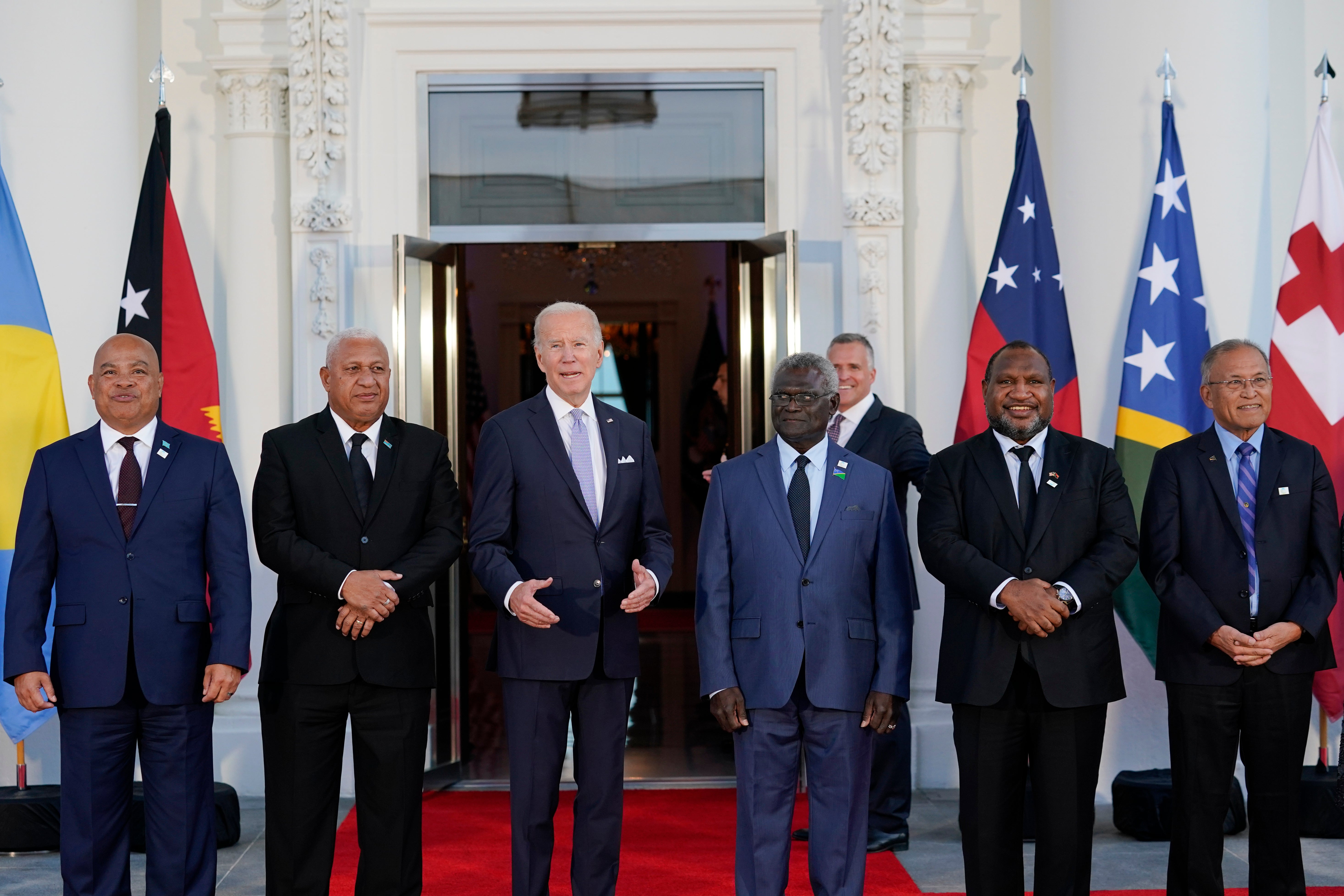Biden uses $130M in frozen Egypt aid to help Pacific Islands
The Biden administration will pay for $130 million in new climate initiatives for Pacific Island nations by reallocating money that originally been earmarked for military assistance for Egypt

Your support helps us to tell the story
From reproductive rights to climate change to Big Tech, The Independent is on the ground when the story is developing. Whether it's investigating the financials of Elon Musk's pro-Trump PAC or producing our latest documentary, 'The A Word', which shines a light on the American women fighting for reproductive rights, we know how important it is to parse out the facts from the messaging.
At such a critical moment in US history, we need reporters on the ground. Your donation allows us to keep sending journalists to speak to both sides of the story.
The Independent is trusted by Americans across the entire political spectrum. And unlike many other quality news outlets, we choose not to lock Americans out of our reporting and analysis with paywalls. We believe quality journalism should be available to everyone, paid for by those who can afford it.
Your support makes all the difference.The Biden administration will pay for $130 million in new climate initiatives for Pacific Island nations by reallocating money that had originally been earmarked for military assistance for Egypt but withheld because of concerns over human rights abuses.
The State Department said it planned to reprogram money allotted for Egypt to pay for the Pacific Islands in a Sept. 29 memo to Vice President Kamala Harris and congressional leaders that was obtained by The Associated Press on Friday.
President Joe Biden announced a plan Thursday for the U.S. to spend $810 million over the next decade — including $130 million for climate resilience programming — to assist the islands as he met with more than a dozen leaders from the region at the U.S.-Pacific Island Summit. The administration is looking to put greater focus on the Pacific Islands amid heightened concern about China’s growing military and economic influence in the region.
“Recent actions by the People’s of Republic of China in the Indo-Pacific have highlighted that increasing U.S. engagement and activity is an urgent priority with major impact on U.S. national interests,” the State Department notification said.
The money reprogrammed was a portion of $1.3 billion in foreign military financing allotted for Egypt in the 2020 budget. The administration froze $130 million in funding over Egypt’s failure to improve human rights conditions.
Congress has a rule that a portion of the annual funding — around $300 million — to Cairo should be conditioned on the Egyptian government upholding basic human rights conditions.
But the Biden administration, like past administrations, has used its authority to issue a waiver to that rule on national security grounds and allow much of the funding to be sent to the Egyptian government.
The White House deferred comment on the decision to reprogram the funding to the State Department. State officials did not immediately reply to a request for comment.
Leaders from Fiji, the Marshall Islands, Micronesia, Palau, Papua New Guinea, Samoa, the Solomon Islands, Tonga, Tuvalu, the Cook Islands, French Polynesia and New Caledonia attended this week’s two-day summit, which included a dinner with Biden at the White House. Vanuatu and Nauru sent representatives, and Australia, New Zealand and the secretary-general of the Pacific Island Forum sent observers.
The summit came amid worrying signs to the U.S. that Beijing has grown its influence in the region. Earlier this year, the Solomon Islands signed a new security pact with Beijing.
The State Department pointed to concerns about Beijing’s increasing sway in explaining its decision to reprogram the funding originally meant for Egypt.
“As the recent signing of a new PRC-Solomon Islands security agreement demonstrates, we may be in the early stages of an historic shift in the Pacific that would usher in a new security paradigm — one that is unfavorable to U.S. security interests, will frustrate our ability to effectively compete with the PRC, and will impede implementation of the Indo-Pacific Strategy,” the memo said.